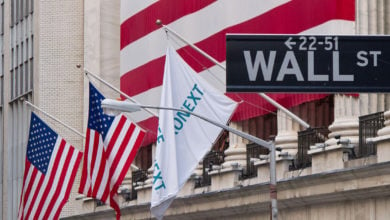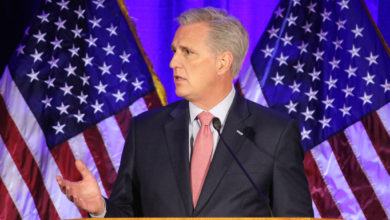The strongly protested, imperialist-dominated, G-20 summit held in London April 2 included two main elements: an attempt to contain the current world economic crisis short of an all-out catastrophe, and an effort by President Obama, along with other heads of state, to convince the public that they are doing something about the crisis.
|
“All of us are now moving aggressively to get our banks lending again,” Obama said. “All of us are working to spur growth and create jobs. And all of us have agreed on the most sweeping reform of our financial regulatory framework in a generation—reform that will help end the risky speculation and market abuses that have cost so many people so much.”
The summit agreement itself stated: “We face the greatest challenge to the world economy in modern times. … By acting together … we will bring the world economy out of recession and prevent a crisis like this from recurring in the future.”
But how seriously should we take these pronouncements? Such assurances are typically given during every major capitalist economic crisis. The long-term trends, repeated economic crises and basic contradictions of world capitalism should make us highly skeptical.
Productive forces overflow national boundaries
A dominant characteristic of modern capitalism, or imperialism, is the tendency of its productive forces to overflow national boundaries—that is, for the production of goods and services to be increasingly organized on an international scale. While this tendency has become much more pronounced during the epoch of imperialism, it was clearly manifested even in earlier stages of capitalism.
Capitalist globalization reflects an increasing socialization of production. At the same time, the major fruits of that production continue to be appropriated privately by a small number of capitalist families based in and collectively ruling individual states. These extremely rich families dominate the economy through their control of giant banks and other corporations that own the major means of production, distribution and communication.
This contradiction between socialized production and private appropriation has continued to sharpen as capitalism has developed. The scope of the current worldwide downturn shows that the system has become not only more oppressive and prone to wars of domination, but also in the long run increasingly unstable and crisis prone.
The contradictions of capitalism can only be resolved by replacing the profit-driven, private-property system with public ownership of the productive wealth of society and the planning of production to meet human needs—socialism. Such a transformation will require the taking of power by the working class, which produces all the social wealth of modern society.
Meanwhile, the growing contradictions and crises of capitalism force the major national governments, including finance ministers, central bankers and sometimes—as in the case of the most recent summit—heads of state, to periodically meet to figure out ways to contain the crises, head off revolutionary challenges and preserve the rule of the rich.
International financial institutions such as the International Monetary Fund and the World Bank also participate. The IMF was originally set up to deal with crises that hit individual countries but not the system as a whole. Now it is assigned a bigger role, with enlarged resources—to stave off complete collapse of poorer and imperialist-dominated economies in Eastern Europe, Africa, Latin America and Asia.
What will be the outcome this time?
Owing to the anarchic nature of the system and lack of transparency in its operations, it is impossible to say, in detail, what the impact of the most recent G-20 summit will be.
Never before did the credit system balloon to the enormous extent it did in recent years thanks to the housing bubble and the fraudulent “innovations” of banks and other loan packagers. The result was overproduction of housing, cars and other commodities—in relation to the market, not to human needs—that exceeded all previous speculative booms, ending in the current crisis.
Job losses, foreclosures and evictions continue unabated, and the solvency of the biggest banks is still in serious question.
The so-called “toxic assets” on the books of the banks continue to be a major headache for would-be rescuers. And international cooperation among the G-20 powers is showing strains, whatever the optimistic rhetoric coming out of the summit.
As the crisis deepens, competitive pressures continue to mount in the most powerful countries. How much longer the United States will be able to finance its record-breaking budget, trade and payments deficits by simply forcing Asian, Middle Eastern and other exporters to recycle their huge dollar surpluses into U.S. treasuries, the long-term value of which is increasingly dubious, is anyone’s guess.
Some bourgeois economists claim to see “light at the end of the tunnel” for the economy. It is possible that the trillions in “stimulus spending,” along with the liquidation of “excess” inventories, closing of factories and write-downs of bad debt now going on, will produce a sluggish and inflationary upturn in the months ahead—in other words, a return to something like the “stagflationary” 1970s.
It is also possible what these economists are seeing is an approaching train. If that is the case, a colossal economic train wreck may be in the offing that no amount of G-20 deliberations can head off.
So far, all the world’s biggest banks, richest governments and highly paid capitalist economists have failed to stop the spread of the crisis. Their emergency measures are designed to shield the position of the capitalists. The burden of the crisis falls on the shoulders of working families who are losing millions of jobs globally. Thus we are witnessing governments advance huge sums to the banks as huge numbers of people are forced into unemployment.







